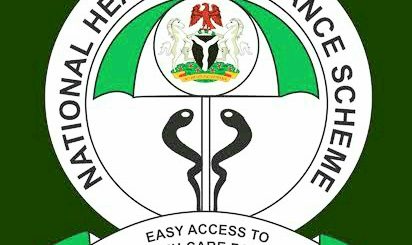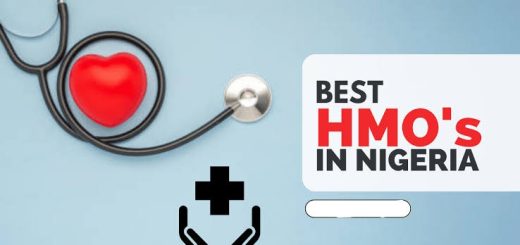The Requirements For Getting Health Insurance in Nigeria (2024)
Health insurance has become an essential need for many Nigerians due to the rising costs of healthcare.
With increasing rates of both communicable and non-communicable diseases, many individuals and families are finding it difficult to pay out-of-pocket for medical expenses. This has led to a growing demand for health insurance to help cushion the blow of sudden health crises.
However, getting health insurance coverage in Nigeria can be a challenging process due to strict eligibility requirements.
This article outlines the key requirements you need to meet to obtain health insurance in Nigeria as of 2024.
REGISTRATION AND ENROLMENT REQUIREMENTS
To get health insurance in Nigeria, the first requirement is that you must be formally registered and enrolled in one of the existing national, state or private health insurance schemes.
The major ones include the National Health Insurance Scheme (NHIS), State Supported Health Insurance Schemes and Private or Voluntary Health Insurance schemes.
Each scheme has its own set of registration procedures which typically involves filling forms, providing personal identification and making any required payments.
Strict criteria is applied in determining eligibility before you can be successfully enrolled into any health insurance plan.
REGISTRATION DOCUMENTS
The first requirement is having the proper documentation. These include:
- National Identification Number (NIN): This is now mandatory for registering for health insurance in Nigeria, as part of the government’s efforts to build an accurate national database.
- Passport Photographs: Most providers require passport photographs of the principal enrollee and each dependent being covered.
- Birth Certificate/Age Declaration: For each dependent enrolled, you may be required to present their birth certificate or sworn affidavit for minors.
- Marriage Certificate: If registering your spouse, you will need to provide a copy of your marriage certificate.
- Utility Bills: Current utility bills may be required as proof of residence.
Without these key documents, prospective enrollees cannot move forward with the application process.
AGE LIMIT REQUIREMENTS
There are age restrictions in place under the NHIS program for getting health insurance. Only Nigerians aged 18 years and above who are considered economically active can enroll under the formal sector program. This covers people engaged in activities like public/civil service, the organized private sector, the armed forces, the police and allied services.
For informal sector enrollment, the age limit is set at 16 years and above, covering self-employed people like traders, farmers, craftsmen, and others. Some private insurers however have more flexible age limits.
INCOME LEVEL REQUIREMENTS
Your income level is another key factor used to determine your eligibility for health insurance in Nigeria.
For the formal sector social health insurance program of NHIS, it is mandatory for all federal government employees and the organized private sector to enroll and make income-based contributions. States can also make health insurance compulsory for state employees based on income.
The informal sector program under NHIS is voluntary, requiring self-employed participants like artisans to make premium payments based on their affordable income level to keep the policy active.
DISABILITY STATUS REQUIREMENTS
Health insurance plans in Nigeria typically require details on disability status during registration. Any pre-existing disabilities or medical conditions you have can affect your eligibility coverage.
Most insurers have a waiting period for certain pre-existing conditions, while disabilities developed after registration are covered with no waiting period. Providing accurate details on disability helps prevent denial of claims related to those conditions in future.
CITIZENSHIP/RESIDENCY REQUIREMENTS
To qualify for certain government-supported health insurance schemes in Nigeria, proof of Nigerian citizenship or permanent residency is required during registration.
The NHIS formal sector program is reserved for Nigerian employees from either the public or private sectors.
Same applies for state-supported programs in Lagos, Delta, Akwa Ibom, Edo, Ondo, Bayelsa, Kwara, Jigawa, Niger, Anambra states although residency requirements may apply for others. Non-Nigerian residents can opt for private health insurance plans.
FAMILY SIZE REQUIREMENTS
Most health insurance providers in Nigeria require you to disclose details on family size during enrollment. This allows them to determine appropriate coverage levels based on the total number of dependents like spouses and children who will also use the policy.
Larger families pay higher premiums for coverage extensions to dependents within certain approved limits depending on the insurer.
Factoring in family size ensures adequate medical risk protection for the principal policy holder and their registered dependents.
LETTER OF EMPLOYMENT
Formal sector workers wishing to join the NHIS program are required to present a letter confirming their employment status with either a government ministry, department, agency or private company recognized by the scheme.
This proves they are eligible to become contributors and get coverage under the defined benefits plan reserved for economically active Nigerians.
PAYMENT/FUNDING REQUIREMENTS
It’s very important to meet the payment requirements of the health insurance provider. To obtain and maintain coverage, insurers require policy holders to pay premiums and make defined contributions. For government schemes like NHIS, employers deduct and remit monthly payments on behalf of their enrolled staff.
Participants also pay a predefined percentage of their basic salary as contribution. Self-employed persons in the informal sector make scheduled payments to keep their policies active. Having a consistent way to meet payment obligations is vital.
KNOW THE FINE PRINT
As the saying goes – the devil is in the details. Do not just look at advertised premiums and benefits when selecting health insurance coverage for you or your family.
Pay equal attention to deductibles, co-pays, claim procedures, reimbursement rates, coverage exclusions, policy expiration rules and limitations hiding deep in the fine print.
An affordable policy on the surface can equate surprise costs over time if you do not understand all the nuts and bolts.
Enrollees should demand transparency from providers around the complete picture.
CONCLUSION
Getting health insurance coverage in Nigeria requires meeting set registration, age, income, disability, residency and family size eligibility conditions relevant to the particular scheme or provider.
A health insurance plan can however provide invaluable financial protection and access to quality care to you and your family making it an essential need for every Nigerian household.
It’s important however to understand the requirements for enrolling under any scheme to avoid denial of claims.



